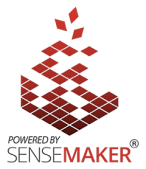The theme of the 2015 Southern African Knowledge Management Summit was the value proposition of Knowledge Management as a competitive strategy – an idea that is relevant for individuals, teams, organisations, sectors, countries and even for the whole Southern African region.
Our context and reality are all too clear – South Africa has fallen from 45th globally (in 2010) to 53rd last year and to 56th in 2015, out of the 144 countries measured in the World Economic Forum’s Global Competitiveness Index. Low rankings in basic primary maths and science education, higher education and training, labour market efficiency, unemployment and low levels of research and development lead to a slipping ranking in this and other productivity and competitiveness surveys. (Source: Africa Competitiveness Report).
Furthermore, our economies are outsourcing innovation and high-value industries, rather having most of their population engaged in low productivity sectors such as agriculture and commodity processing, which offer a little leverage in an increasingly competitive world. As one delegate commented on the Sensemaker journal: “(It is) really concerning that R&D funding is decreasing when 99.7% of all R&D happens outside of SA.”
The solutions to these national and regional challenges will not be solved by business, or government, or by the development sector alone. The 2015 KM Summit brought together voices from across these sectors, to explore the role of KM in Southern Africa’s quest for competitiveness…
The South African National Development Plan seeks to tackle many of these challenges, eliminate poverty and reduce inequality by 2030, as highlighted by Dr Tshenge Demana, Chief Director: Industrial Development Division, DTI, in his keynote on Industrial policy as a platform for competitiveness.
The NDP includes:
• a 2-year National Infrastructure Plan with 18 strategic integrated projects, including green electricity generation, expanding access to communication technology and public transport;
• a Human Resource Development Strategy to maximise the potential of citizens to acquire knowledge and skills to be productive and competitive at work;
• a Technology Strategy that includes training 5000 PhDs annually, increasing R&D spending to 1.5% of GDP and encouraging donor funding of research and development;
• an Industrial Policy to provide extensive support to value adding manufacturing activities, to diversify economy away from primary resource dependence, and to diversify the economy to include historically disadvantaged people and regions.
This National Development Plan poses significant challenges to our country’s capacity, particularly as relates to the scare and critical knowledge demands it creates. For the NDP to succeed, “building people is as critical as building physical assets” and becomes a strategic national imperative” according to Philip Marsh of Knowledge Management Institute-Africa in his case study on Preparing for the scarce and critical knowledge demands of the much vaunted National Development Plan.
Davis Cook, CEO of RIIS, highlighted the need for Open Innovation – innovation practices that cross traditional institutional borders and facilitate collaboration and knowledge sharing across a broad stakeholder network. Open innovation offers both as a tool for knowledge exchange as well as a source of competitive advantage.
“Open innovation is a paradigm that assumes that firms can and should use external ideas as well as internal ideas, and internal and external paths to market, as the firms look to advance their technology”. Chesbrough, Henry William (2003). Open Innovation: The new imperative for creating and profiting from technology. Boston: Harvard Business School Press.
Open innovation is particularly critical in regional and national development needs that cross traditional corporate/government divides, such as the open innovation platforms RIIS has built for The Innovation Hub in Gauteng and the East London Industrial Development, as well as Africa’s first cross border open innovation platform, Regional Connect, in partnership with the University of Namiba and the National Technology Business Center in Zambia.
Our case study exchange offered another two tangible examples of this paradigm of innovation and knowledge management.
Dr Gretchen Smith of Knowlead Consulting & Training offered a case on Implementing KM in a Provincial Government: Case study of the Limpopo Province. This story focused on the introduction of KM to a Limpopo Provincial Government “under siege” and the resulting significant benefits to competitiveness, including organisational learning, access to strategic information, increased process efficiency & improved service delivery.
Hanlie Turner (PPC) & Lucien de Koker (Firestring) offered a tangible example of this attitude to innovation in their Case study: Exploring the digital journey of the PPC Cement & Concrete Cube (C3). In the spirit of open innovation, this innovative ‘Cube’ platform facilitated streamlined collaboration and information sharing for industry stakeholders across the Cement & Concrete Industry. “PPC recognised the importance of information and knowledge management beyond traditional boundaries, to avail open platforms for collaboration.” – Lucian de Koker
The message of all of these speakers was clear: Southern Africa is a place of great challenges, but also great opportunities. To tackle these challenges will undoubtedly take cooperation across sectors to share knowledge, experience, resources and ideas… embracing emerging models such as Open Innovation into how we tackle our national strategic imperatives.
Sustainable competitive advantage for Africa will take increased sharing, collaboration and cross-boundary innovation – and who better to guide and lead this than the KM community!
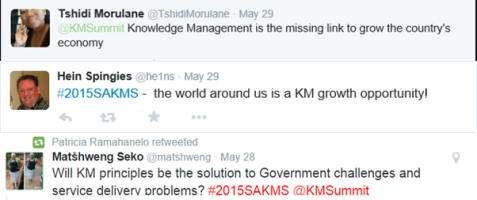
Related links:
The role of the Knowledge Leader: a roundtable discussion

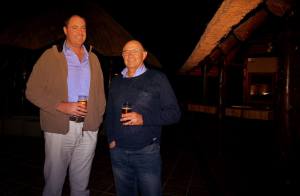

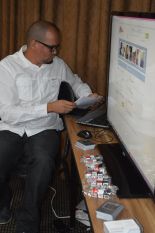
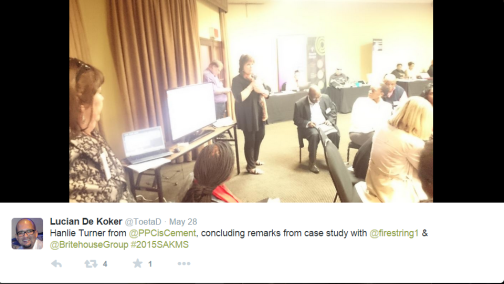
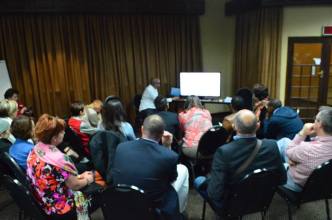
 I was participating at the SAKMS (Southern African Knowledge Management Summit) in Pretoria, as a panel member at the Discussion on Knowledge Leader workshop. We had fun, and lots of learning with KM experts including Patrick Lambe of Straits Knowledge (Singapore), Prof. Adeline Du Toit (University of Pretoria) and Dr Andrew Kok (Western Cape Government).
I was participating at the SAKMS (Southern African Knowledge Management Summit) in Pretoria, as a panel member at the Discussion on Knowledge Leader workshop. We had fun, and lots of learning with KM experts including Patrick Lambe of Straits Knowledge (Singapore), Prof. Adeline Du Toit (University of Pretoria) and Dr Andrew Kok (Western Cape Government). Knowledge Management has always sounded like a bit of a misnomer to me… How do you “manage” something as organic, contextual and “nebulous” as knowledge? Management always conjures up ideas of top-down, mandated processes; whereas knowledge (in the words of Dave Snowden) can only be volunteered, not conscripted. The two concepts have just always seemed to contradict each other.
Knowledge Management has always sounded like a bit of a misnomer to me… How do you “manage” something as organic, contextual and “nebulous” as knowledge? Management always conjures up ideas of top-down, mandated processes; whereas knowledge (in the words of Dave Snowden) can only be volunteered, not conscripted. The two concepts have just always seemed to contradict each other.